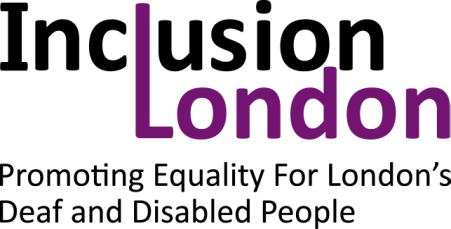HOW TO OPPOSE A PARLIAMENTARY BILL 1 INTRODUCTION INFORMATION
COMPÉTENCE 3 S’OPPOSER INDIVIDUELLEMENT OU COLLECTIVEMENT CYCLE 2HOW TO OPPOSE A PARLIAMENTARY BILL 1 INTRODUCTION INFORMATION
III) LIBERTÉ BONHEUR ET MORALE A LA LIBERTÉ S’OPPOSETELLE
How to oppose a Parliamentary Bill
Introduction
Information is provided below about campaigning to oppose a Bill, which includes:
Who to target
An explanation of common expressions such as ‘Bill’ and ‘Act’
When to take action, together with a short description of the different stages of making a law.
Suggestions about the type of action to take
Who to target
If you wish to try to stop a Bill from becoming law you can target the following:
Your local Member of Parliament (MP)
Lords that are interested in the Bill
Committees involved with the detailed work on the Bill
The department dealing with the Bill
Parliament as a whole.
Write letters or emails to your MP and meet them at their ‘surgery’ (a one to one meeting with an MP) to let them know your concerns with the Bill to influence their opinion. This is known as ‘lobbying’ your MP. Demonstrate/take direct action outside your MP’s surgery or constituency office and outside parliament. Also let appropriate members of the House of Lords and the department dealing with Bill know why you oppose the Bill. You can also petition the House of Commons or House or House of Lords, more information about that is available at: http://www.parliament.uk/get-involved/have-your-say/petitioning/
You can create an e-petition about anything that the government is responsible for and if it gets at least 100,000 signatures, it will be eligible for debate in the House of Commons, more information is available here: http://epetitions.direct.gov.uk/
However, your prime target is usually your local MP.
MPs
Why should your MP be your principal target?
MPs are your local elected representatives and they need to understand what the practical impact of a Bill will be on their constituents. Your real life experience is valuable and you should aim to influence your MP’s decision to support or oppose a Bill when they vote. If there is a majority of MPs voting against the Bill, it cannot progress to the next stage and will fall i.e. not become law. Your concerns about the Bill will also enable your MP to suggest appropriate amendments.
Find out who is your local MP at: http://findyourmp.parliament.uk/
Contact details are available at: http://www.parliament.uk/mps-lords-and-offices/mps/
Times of MPs surgeries are available here: http://wiki.openrightsgroup.org/wiki/London_MP_Surgeries
You can also attend debates at the House of Commons and the House of Lords, information about this is available at:
http://www.parliament.uk/visiting/attend/debates/
Lords
Unlike MPs, the Lords are not elected nor are they allocated to particular areas of the country. You can target Lords that have an interest in the issue being debated. Regarding Bills that will impact on disabled people, the Members of the All-Party Committee on Disability, would be a good place to start. These include disabled peers like Dame Anne Begg, and Baroness Jane Campbell. You can see members of the All-Party group at: www.publications.parliament.uk/pa/cm/cmallparty/register/disability
Research is needed to find out which other peers are interested in disabled people’s issues, such as Lord Colin Low. There is a full list of all Peers and their interests (see Category 10 Non-financial interests) and how to contact them at the following link: www.parliament.uk/mps-lords-and-offices/lords also you can check on the Lords and MPs voting records by going to http://www.publicwhip.org.uk/
Information about contacting a Lord is also available at: http://www.parliament.uk/get-involved/contact-a-lord/lord/
You can also contact the department responsible for the Bill
Terminology / Common expressions
There are various expressions used in parliament during the process of a making a law, a few of these expressions are explained briefly below:
Bills
A Bill is a draft of a new law, or a proposal to change an existing law, both are debated by MPs and the Lords. Bills are also referred to as ‘legislation’.
Draft Bills are often called White or Green Papers.
Green papers, (which are printed on white paper), are tentative proposals put forward by the appropriate Government Minister. They outline government proposals, which are still taking shape.
A white paper is a statement of policy and contains definite proposals for legislation, it can be published at the same time as the relevant bill. A white paper can follow a Green paper.
The government can put a Green or White paper out to consultation, requesting comments on the proposals from professional bodies, voluntary organisations and the general public.
However, the government is not obliged to publish a White or Green Papers before a Bill is introduced into Parliament i.e. there may be no Green or White papers before the Bill is presented to parliament.
More information on draft Bills are is available at:
http://www.parliament.uk/about/how/laws/draft/
Types of Bills
There are three different types of Bill: Public, Private and Hybrid Bills.
Most Bills are ‘Public Bills’, which are introduced to parliament by a government Minister. A Public Bill can also be brought forward by an individual MP or Lord that isn’t a Minister, it is then called a ‘Private Members Bill’.
More information is available about the three different types of Bill at:
More
on Public Bills
More
on Private Members' Bills
More
on Private Bills
More
on Hybrid Bills
Acts
An Act of Parliament creates a new law or changes an existing law.
When both the House of Commons and the House of Lords have agreed on the content of a Bill it is then presented to the Queen (the reigning monarch) for approval, known as Royal Assent. Once Royal Assent is given a Bill becomes an Act of Parliament and is law.
When a Bill ‘Falls’
If the majority of MPs oppose a Bill it ‘falls’ i.e. the Bill cannot proceed to the next stage in parliament and therefore will not become a law.
When to take action
Summary
You can inform your local MP or the Lords why you oppose the Bill right from the early stages of a Bill, e.g. when a green paper comes out, through to the ‘Consideration of Amendments’ the final stage before Royal Assent.
Crucial times are when MPs vote on a Bill, so it either moves to the next stage or ‘falls’. This takes place at the second and third reading in the House of Commons (see ‘Passage of Bill section below). A Bill can also fall at the ‘Consideration of Amendments’ stage, but this is unusual.
A Bill can also be changed (amended) so the aspects you are concerned about may be removed from the Bill. This can take place at the Committee and Report stages in the House of Commons and from the Committee stage through to the 3rd Reading in the House of Lords.
Below is a brief description of the different stages that a Bill goes through in its passage through parliament before it become a law, highlighting when to take action. More information about the process of making new laws is available at:
http://www.parliament.uk/about/how/laws/
http://www.parliament.uk/about/how/laws/passage-bill/commons/coms-commons-first-reading/
Making a law
Each Bill is part of the government’s programme of legislation, which is introduced to parliament by the Queen’s speech at the opening of each session of Parliament, which usually takes place in November but last year took place on 25 May 2010, it is available at: http://www.publications.parliament.uk/pa/ld201011/ldhansrd/text/100525-0001.htm#1005255000174
Draft Bills
As mentioned above the government can put a Green or White paper out to consultation.
What to do: Respond to any government consultations and let your local MP know what your issues with the Bill are so they can raise them in the House of Commons during the debates that will follow.
Passage of a Bill
Bills can start in either the House of Commons or the House of Lords. We will follow the passage of a Bill starting in the House of Commons moving to the Lords. The first stage is the ‘First Reading’:
First reading: This is just a formality when the Bill is introduced on to the House of Commons, there is no debate on the Bill.
Second Reading: All MPs can flag up concerns with the Bill. MPs also vote to oppose or support the Bill, dictating whether it continues to proceed to the next stage or falls. It is an important stage so MPs need to know your views before they vote.
What to Do: You can write, email, and meet with your MP before the 2nd Reading or demonstrate/take direct action outside the constituency office or where a surgery is taking place. On the day of the vote you could take direct action/ demonstrate outside parliament.
Committee stage: Detailed examination of the Bill. Committee members vote on changes (amendments) to the Bill. More information about Public Bill Committees is available at: http://www.parliament.uk/about/how/committees/general/
What to do: Respond if there is a ‘Call for evidence’ by the Public Bill Committee. General information about giving evidence is available at: http://www.parliament.uk/get-involved/have-your-say/submit-evidence-on-a-bill/
MPs that are not in the Committee cannot act in any way during this stage. However, it is still important to inform them of your concerns so they can act at later stages.
Report Stage: This is the first time all MPs can suggest, debate and vote on amendments. MPs do not vote on the Bill as a whole at this stage.
What to Do: Inform you MP of your concerns to enable them to suggest appropriate amendments for debate.
Third Reading: Your MP can vote to support or oppose the Bill, but no amendments can be made. The vote of the majority of MPs in support of the Bill allows it to proceed to the House of Lords. This is another crucial time for the Bill, so it is important for you MP to know your views by the time they vote.
What to Do: You can write, email, and meet with your MP before the third reading or demonstrate/take direct action outside the constituency office or where a surgery is taking place. On the day of the vote you could take direct action/demonstrate outside parliament.
Once the 3rd reading is completed the Bill moves to the House of Lords. MPs cannot influence the Bill until it returns to the House of Commons for the ‘Consideration of Amendments’ stage, which is the final stage before Royal Assent, when the Bill become an Act of Parliament i.e. becomes law.
House of Lords
As with the passage of the Bill through the House of Commons you can inform the Lords of your concerns with a Bill during the whole passage of the Bill. Unlike the Commons, the passage of the Bill cannot be stopped (vetoed) by the Lords opposing it. The Lords vote on amendments only.
First Reading: As with the House of Commons, this is just a formal introduction of the Bill to the House of Lords and there is no debate.
Second Reading: All Lords can flag up concerns with the Bill, which are debated. The Lords then vote on whether to support or oppose the amendments.
What to do: Inform the Lords of your concerns so they can raise them during the debate.
Committee stage: This is when detailed examination of the Bill starts in the Lords; all parts (clauses of the Bill) are looked at. Unlike the Commons all the Lords take part and vote on amendments to the Bill, unless the Bill is moved to a ‘Grand Committee’ where no votes are taken.
What to do: Inform the Lords of your concerns with the aim of influencing their votes and suggestions for amendments.
Report Stage: The examination of the Bill continues, amendments are discussed and voted on.
What to Do: Inform the Lords of your concerns with the aim of influencing their votes and suggestions for amendments.
Third Reading: Unlike the Commons the Lords can make amendments at this stage, which are debated.
What to Do: Inform the Lords of your concerns.
After third reading in the Lords, the amended Bill is sent back to the Commons for it to consider the Lords amendments.
Consideration of Amendments
Both Houses can make amendments which have to be agreed by both the Commons and the Lords.
What to do: You can still inform MPs and the Lords of you concerns in order to have an impact on the amendments. However, the major work on a Bill will usually have been completed by this stage.
Once the Commons and Lords agree on the final version of the Bill, it can receive Royal Assent and become an Act of Parliament, the Bill now becomes law.
In exceptional cases, when the two Houses do not reach agreement, the Bill falls. If certain conditions are met, the Commons can use the Parliament Acts to pass the Bill, without the consent of the Lords, in the following session.
More information is available about the parliament and each stage of the Bill here:
For more information contact:
Inclusion London
Can Mezzanine
49-51 East Road
London
N1 6AH
Email:
[email protected]
Telephone: 020 7237 3181
London
Deaf and Disability Organisations CIC
Company registration no:
6729420


Tags: information is, more information, introduction, information, parliamentary, oppose
- C SS TUTORIAL 1 – CREATING YOUR FIRST STYLES
- EUROPASS ŽIVLJENJEPIS OSEBNI PODATKI PRIIMEK IME MEDJA ANA
- 0 20187 AZ EGÉSZSÉGI ALKALMASSÁGOT KIZÁRÓ LEGGYAKORIBB OKOK A
- LA SITUACION ECONÓMICA EN GENERAL DEL PAÍS HA MEJORADO
- KOMISIJA ZA IZRADU NACRTA ZAKONA ZAKON O PCELARSTVU SRBIJE
- O CFS5183JS (REV 072019) NOMBRE(S) DEL PADREMADRE DE CRIANZA
- UNIDAD DIDÁCTICA 3 LA DIVERSIDAD DE LA MATERIA
- UGDYMO TURINIO IR PROCESO KAITA KIEKVIENĄ MOKYTOJĄ MOKYKLOS VADOVĄ
- MOKINIŲ PRIĖMIMO Į ŠV KRISTOFORO GIMNAZIJĄ PAGAL PAGRINDINIO UGDYMO
- CONFIGURE A TAPE LIBRARY IN HPUX (10X 11X) CURRENT
- ΘΕΩΡΊΑ ΔΙΚΑΊΟΥ ΚΑΙ ΘΕΣΜΏΝ Η ΘΕΩΡΊΑ ΤΗΣ ΔΙΚΑΙΟΣΎΝΗΣ ΤΟΥ
- HR DIVISION 0512 PATERNITY MATERNITY SUPPORT ADOPTION
- AKTUALIZACJA DOKUMENTÓW ICAO 01 SIERPNIA 2012 R 1 DOC
- N FS BULGARIA ФОТОТЕХНИКА & ОПТИКА & СОБСТВЕН СЕРВИЗ
- ETSI COPYRIGHT LICENCE REQUEST REFERENCE ARTICLE 91 OF THE
- PÁGINA 2 DE 2 FORMULARIO IE3 EVALUACIÓN INICIAL NOTIFICACIÓN
- SOLOMON THINKER BUILDER LEADER KING “SOMETHING GREATER” KINGS 10110
- FLORIDA DEPARTMENT OF HEALTH EMERGENCY MEDICAL SERVICES APPLICATION FOR
- D SKOLEBESTYRELSEN ISTRIKTSSKOLE SMØRUM REFERAT AF EKSTRAORDINÆRT SKOLEBESTYRELSESMØDE D
- REGULAMIN ELEKTRONICZNYCH ZAPISÓW NA SEMINARIA DYPLOMOWE I ZAJĘCIA FAKULTATYWNE
- ¿CUÁLES SON LAS DIFERENCIAS ENTRE DEFENSA PÚBLICA Y DEFENSORÍA
- B TU ANNUAL HOLIDAY CELEBRATION W EDNESDAY DECEMBER 16
- DEMOCRACIA GIOVANNI SARTORI EL TÉRMINO DEMOCRACIA APARECE POR PRIMERA
- 16 PREVALENCE AND CORRELATES OF PSYCHIATRIC DISORDERS IN PRESCHOOLERS
- TEXTO CURRICULAR DE GABRIEL RODRÍGUEZ COMISARIO DE LA EXPOSICIÓN
- REFERENCIA BT0313 CONVOCATORIA INTERNA DE BOLSA DE TRABAJO DE
- LJUBLJANA 27 AVGUST 2009 POVZETEK PREDSTAVITEV RAZPRAVE IN ZAKLJUČKI
- ELECTION OF PAYMENT OPTION FOR SALARIED EMPLOYEES (FACULTY AND
- INSTITUTO SUPERIOR TECNOLOGICO PRIVADO CIBERTEC DIRECCION ACADEMICA CARRERAS PROFESIONALES
- AVTALEMAL OVERORDNET SAMARBEIDSAVTALE MELLOM KOMMUNELEDELSE OG REGIONLEDELSE I
APPENDIX B INDEX OF PUBLIC HEARINGS INSPECTIONS AND
 SUPPLEMENTARY MATERIAL TABLE S1 COMPARISON BETWEEN EQUILIBRIUM STATE
SUPPLEMENTARY MATERIAL TABLE S1 COMPARISON BETWEEN EQUILIBRIUM STATE35 APORTES A LA ESTRATEGIA NACIONAL DE BIODIVERSIDAD ACCESO
SUMMARY OF THE MAIN TEMPORARY ATC ALTERATIONS DECIDED AT
 C ENTRO DE FEDERACIONES DEPORTIVAS AVDA JULIÁN CLAVERÍA 11
C ENTRO DE FEDERACIONES DEPORTIVAS AVDA JULIÁN CLAVERÍA 11POLISH HANDBALL FEDERATION IS INVITING SUITABLE CANDIDATES TO SUBMIT
ALLEGATO 3 CRITERIO C – COMPETENZE PROFESSIONALI SOGGETTO ACCREDITATO
“NATIONAL TREASURE BOOK OF THE LAW” INTRO GOD IS
EMILIAGIANINA ŞERPESCU CURRICULUM VITAE INFORMAŢII PERSONALE NUME ADRESĂ TELEFON
 REPORT MERTON SAFEGUARDING CHILDREN BOARD DATE SEPTEMBER 2014 SUBJECT
REPORT MERTON SAFEGUARDING CHILDREN BOARD DATE SEPTEMBER 2014 SUBJECTSPISAK ZDRAVSTVENIH RADNIKA IZ JZU OPŠTA BOLNICA NIKŠIĆ KOJI
Wzór Wniosku nr 2 do Karty Usług Wgn07 Grodzisk
(NORMAL GENLEL KURUL İÇİN) KARAR ÖRNEĞİ KARAR NO
EXECUTIVE SUMMARY THE 2001 NATIONAL SURVEY OF VETERANS (NSV)
 REQUIREMENT SPECIFICATIONS FOR LEVEL2 PARAMETERS REQUIRED STORED OR DERIVED
REQUIREMENT SPECIFICATIONS FOR LEVEL2 PARAMETERS REQUIRED STORED OR DERIVED CURSO ACADÉMICO 2017 – 2018 HORARIO 4º CURSO (MENCIÓN
CURSO ACADÉMICO 2017 – 2018 HORARIO 4º CURSO (MENCIÓNBLOQUEANDO CON DA BOMB ESTO ES LO QUE MÁS
OPOSICIÓN LIBRE CONVOCADA PARA CUBRIR EN PROPIEDAD CUATRO PLAZAS
 UNINETT 00902 – PCSERVER MED TILBEHØR OPPSUMMERING AV EVALUERING
UNINETT 00902 – PCSERVER MED TILBEHØR OPPSUMMERING AV EVALUERING SUNUŞ ELINIZDEKI “ENERJI VERIMLILIĞI VE TASARRUFU KILAVUZU” ILE GÜNLÜK
SUNUŞ ELINIZDEKI “ENERJI VERIMLILIĞI VE TASARRUFU KILAVUZU” ILE GÜNLÜK
